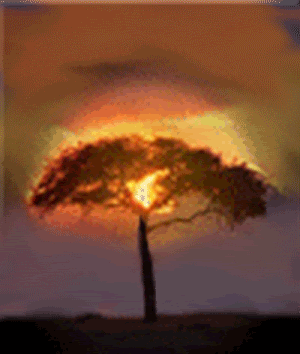Well, let us find the answer in the cantata BWV 199 of Johann Sebastian Bach for solo soprano. The last one the Cantor wrote for a solo soprano and for me the most beautiful, most sensual, most risky of the entire corpus.
This is the cantata where the notion of faith is expressed in the most earthy, carnal, human, erotic way:
Mein Herze schwimmt im Blut,
Weil mich der Sünden Brut
In Gottes heilgen Augen
Zum Ungeheuer macht.
Und mein Gewissen fühlet Pein,
Weil mir die Sünden nichts
Als Höllenhenker sein.
Verhaßte Lasternacht!
Du, du allein
Hast mich in solche Not gebracht;
Und du, du böser Adamssamen,
Raubst meiner Seele alle Ruh
Und schließest ihr den Himm
Ach! unerhörter Schmerz!
Mein ausgedorrtes Herz
Will ferner mehr kein Trost befeuchten,
Und ich muß mich vor dem verstecken,
Vor dem die Engel selbst ihr Angesicht verdecken.
My heart swims in blood
because the brood of my sins
in God's holy eyes
makes me into a monster.
And my conscience feels pain
because my sins are nothing
but Hell's hangmen.
Detested night of vice!
You, you alone
have brought me into such distress;
and you, you evil seed of Adam,
rob my soul of all inner peace
and shut it off from heaven!
Ah! unheard of pain!
My withered heart
will in future be moistened by no comfort
and I must conceal myself from himbefore whom the angels themseves conceal their faces.
http://www.youtube.com/watch?v=FNF1zMzBEm4
The illustration through the YouTube video, with Magdalena Kožená singing, is a proof that music is the most powerful - and therefore the most dangerous of all Arts - and it also tells you that the pious Bach should and would have been killed by the inquisition, would the musician have been catholic and would the religious squad have been smart enough to identify and recognize the power and the danger of this music.
Fortunately, Bach was not catholic and the religious censors weren't smart enough.
But, back to Rudolf Serkin, the mid eastern Europe Jew from the early XX Century emigrating to the USA when the barbarians started to destroy Humanity and Mankind in Europe, Leonid Kogan, the "little Abraham Lincoln" from Odessa, who behaved and lived knowing and showing that being a Russian musician was the most important thing on earth and Lorraine Hunt, the girl from California who was able to " to dig as deeply as possible into the character — to find all the grain in the wood".
These three are the epitome of the Power and the Danger of Music as supreme Art.
http://www.youtube.com/watch?v=KsLojxzbuFM
http://www.youtube.com/watch?v=3XuiYO95aBI
http://www.youtube.com/watch?v=w2bmIkljjqY
That is why their loss is so burning after respectively 19, 28 and 5 years.
That is also why the Life and the Art expressed by their musicianship is also forever burning, like the Burning Bush

